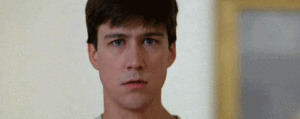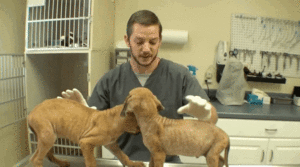“Please don’t touch the art.” This statement is oft quoted by my friends and family in reference to my on campus job. Officially, I am a guard at the Ruth Chandler Williamson Gallery here at Scripps College. After hearing this, you would probably think I’m an art major, minor, at least some sort of art connoisseur. None of these are particularly true, and if I had to title my role in the art world, I would pick something along the lines of art appreciation specialist.
 I really love looking at art, I love my job and my coworkers, and I even spent a good chunk of my time and money abroad getting lost in art museums and galleries in a variety of European cities. However, my academic knowledge and understanding of the art world is fairly limited.
I really love looking at art, I love my job and my coworkers, and I even spent a good chunk of my time and money abroad getting lost in art museums and galleries in a variety of European cities. However, my academic knowledge and understanding of the art world is fairly limited.
I am a Science, Technology & Society major and aspire to be a veterinarian one day. An art gallery really seems like the ideal place for me to work, right? Now you probably understand why my loved ones chuckle whenever I mention my job. Animal medicine and art protection seem like absolutely opposite ends of the job description spectrum. However, I’m here to tell you that I’ve learned a great deal about my future career in animal care from my time working in the gallery.
 Sitting immersed in art for eight hours a week has helped me to learn how to really look at my surroundings. I’ve always been an observant person, and I’ve always been critical of the world around me. I like to know how and why thing are the way they are, and I work hard to understand the things that I see. Art isn’t an easy thing to observe. It is subjective, and different people find different meanings in it. A piece that I find inspiring and filled with movement and life, another could find oppressive and representative of human adversity to confinement.
Sitting immersed in art for eight hours a week has helped me to learn how to really look at my surroundings. I’ve always been an observant person, and I’ve always been critical of the world around me. I like to know how and why thing are the way they are, and I work hard to understand the things that I see. Art isn’t an easy thing to observe. It is subjective, and different people find different meanings in it. A piece that I find inspiring and filled with movement and life, another could find oppressive and representative of human adversity to confinement.
Just as art isn’t an easy thing to see and analyze, animals are just as difficult to really look at. Animals, just like paintings, can’t tell you verbally what they are about. It takes a critical eye and dedicated mind to see what is wrong with a dog and diagnose it properly. You have to know where to look and how to look. Working in the art gallery has refined my abilities for critical observation, and I am confident that I am going to be a better veterinarian because of it. By looking at animal medicine as an art itself, and not just a science, I have expanded my mindset and critical thinking skills.
 Even though my job on campus is seemingly as far as possible from what I want to do in the future, it has helped me to develop skills that I will use in my career one day. Did I expect this to happen? Absolutely not, but I am so glad that it has. I encourage you to go out and gain experience in any and all work environments. I guarantee that you will develop networking, practical, and/or observational skills that will help you grow throughout your future path. Whatever those newly refined skills are, you will be happy you have them, and you will learn more about yourself, your interests, and your future career along the way. So if even if you have a job that on paper seems like it has no relevance to your desired path, no need to worry! The lessons you learn will be relevant to your life experience, and those lessons can be applied to any career, so long as you are willing to open your eyes and find them.
Even though my job on campus is seemingly as far as possible from what I want to do in the future, it has helped me to develop skills that I will use in my career one day. Did I expect this to happen? Absolutely not, but I am so glad that it has. I encourage you to go out and gain experience in any and all work environments. I guarantee that you will develop networking, practical, and/or observational skills that will help you grow throughout your future path. Whatever those newly refined skills are, you will be happy you have them, and you will learn more about yourself, your interests, and your future career along the way. So if even if you have a job that on paper seems like it has no relevance to your desired path, no need to worry! The lessons you learn will be relevant to your life experience, and those lessons can be applied to any career, so long as you are willing to open your eyes and find them.
Join the conversation! Comment below with the life lessons you’ve gained from your on campus jobs. Let’s compare observational notes and see what we can learn from each other!
